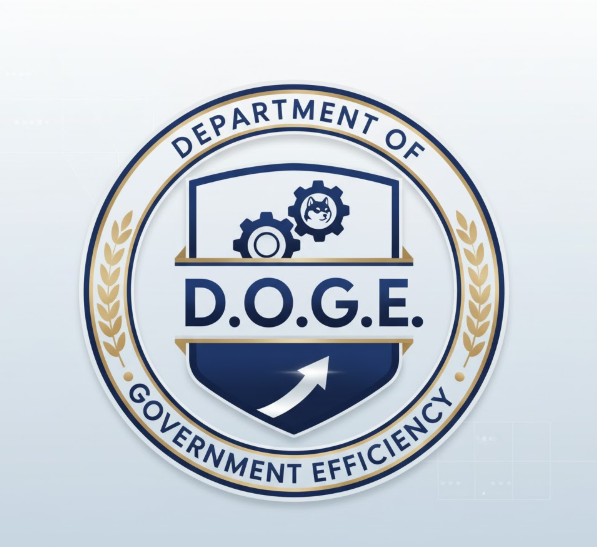DOGE HHS Migrant Housing Contract
Introduction
When Elon Musk announced the creation of the Department of Government Efficiency (DOGE). His goal sounded simple: make the government work as efficiently as one of his rockets. The idea was bold — cut waste, modernise technology, and hold federal agencies accountable.
But in early 2025, DOGE became embroiled in a fierce debate over a contract with the Department of Health and Human Services (HHS). A San Antonio-based nonprofit, Family Endeavors. The disagreement, known widely as the DOGE HHS Migrant Housing Contract controversy, centred on an $18 million-per-month facility in Pecos, Texas, designed to house unaccompanied migrant children.
DOGE claimed the contract was the epitome of government waste. Critics argued it was a humanitarian lifeline unfairly targeted for political showmanship. What followed was a clash that tested the limits of efficiency, ethics, and empathy in American governance.
Head over to the Plugin Report homepage for more guides and resources.
Background: What Is DOGE and Its Mission?
The Department of Government Efficiency (DOGE) was launched under Musk’s guidance to streamline federal operations. Its mission was to identify waste, fraud, and abuse while upgrading outdated systems through modern software and data-driven decision-making.
DOGE quickly gained attention for aggressive audits across major agencies — from defence to health. Supporters hailed it as the revolution the government needed. Detractors accused it of overreach and of using efficiency as a cover for ideological downsizing.
Musk’s public persona fuelled both admiration and suspicion. His posts on X (formerly Twitter) amplified DOGE’s actions, often framing them as taxpayer victories. We’re cutting bloat and saving billions,”* he declared in one viral post.
Yet behind the slogans lay complex realities — none more contentious than the HHS migrant housing case.
The Contract in Question: HHS and Family Endeavors
The Department of Health and Human Services oversees a broad range of responsibilities, from healthcare programmes to child welfare. Within it sits the Office of Refugee Resettlement (ORR), which manages the care of unaccompanied migrant children entering the United States.
To meet surges in border crossings, ORR contracts private partners to provide shelter, food, medical services, and education. One such contract, worth $18 million a month, went to Family Endeavors for a large-scale facility in Pecos, Texas.
The Pecos site was meant to serve as an emergency overflow centre for up to 2,000 minors. Built in 2021, it featured classrooms, clinics, dormitories, and legal-aid offices — essentially a small, self-contained city for children in transit.
By 2025, however, occupancy had dropped dramatically. Reports indicated that fewer than 10 percent of beds were filled for months at a time, raising the question: why was HHS still paying nearly $216 million per year for a mostly idle facility?
The DOGE Audit and Contract Termination
DOGE’s analysts flagged the Pecos contract during a routine review of federal spending. Their audit found that, although the facility had once housed more than 40,000 children between 2021 and 2024, by early 2025 it stood nearly empty.
In March 2025, DOGE recommended terminating the contract, arguing that maintaining unused space amounted to “severe financial inefficiency.” The move, approved by HHS leadership, was projected to save $215 million annually.
Elon Musk wasted no time claiming victory. On X he posted:
DOGE has helped transform the federal government by eliminating waste and bloat that have been ignored for years.
For DOGE, it was evidence that the agency’s model worked. For HHS veterans and humanitarian groups, it signalled a worrying shift: applying corporate metrics to human-services programmes where flexibility and readiness are crucial.
How DOGE Discovered the Contract
Under Elon Musk’s leadership, DOGE had rapidly expanded across more than twenty federal agencies with a mission to root out waste, fraud, and inefficiency. Staffed by a mix of technologists, analysts, and former corporate auditors, the department relied heavily on data analytics and AI-driven auditing tools to identify high-cost programmes with low output.
In February 2025, while cross-referencing federal spending databases, DOGE analysts noticed recurring high payments to Family Endeavors through HHS — monthly disbursements exceeding $18 million for a single migrant housing facility that showed no measurable activity in accompanying utilisation records. The discrepancy triggered an internal review, and within days, DOGE launched a formal audit of HHS’s migrant care contracts.
According to internal memos later disclosed in court filings, DOGE’s auditors requested access to HHS’s Unaccompanied Alien Children (UAC) data systems — the same platform that tracks the welfare of migrant minors. This step proved controversial, as it gave DOGE personnel temporary visibility into sensitive case records, a move that some former HHS officials called unprecedented and potentially risky.
udit Findings: Low Occupancy and High Costs
The audit, finalised in late February 2025, painted a troubling picture. DOGE found that while the Pecos facility had been designed to hold up to 2,000 children, it was operating at less than 10% capacity, and for several months, it was completely empty.
Despite this, HHS continued to pay Family Endeavors the full contractual rate — approximately $18 million per month — to keep the facility operationally ready. The nonprofit justified the ongoing costs by citing fixed expenses such as property leases, medical equipment maintenance, refrigeration for vaccines, round-the-clock security systems, and compliance obligations.
Family Endeavors’ Defence
Family Endeavors rejected DOGE’s narrative of waste and corruption. In statements to News 4 San Antonio and Moneywise, the nonprofit insisted that it was fulfilling all contractual obligations.
The organisation explained that stand-by costs — rent, maintenance, medical equipment, refrigeration for vaccines, and 24-hour security — continued even when the facility was temporarily empty. Federal officials, not the nonprofit, determined when shelters opened or closed based on border flows.
- Any claims of corruption or mismanagement are baseless, Family Endeavors stated.
- Our selection was based on proven experience, capacity, and over a decade of performance.
Since 2012, Family Endeavors has managed shelters and social-service programmes for migrant families under multiple administrations. To them, the Pecos facility was a contingency asset, not a failure.
Allegations of Conflict of Interest
DOGE’s public post about the contract went beyond cost analysis. It pointed to a potential conflict of interest, claiming that a former ICE official and Biden transition team member had joined Family Endeavors shortly before the contract was awarded in 2021.
According to DOGE, Family Endeavors’ assets ballooned from $8.3 million in 2020 to $520 million in 2023, implying political favouritism. The nonprofit countered that such growth reflected the unprecedented humanitarian demand during migration surges and that it was just one of fifteen approved contractors at the time.
Critics of DOGE argued that Musk’s team was selectively targeting contracts to score political points while ignoring his own companies’ government deals. SpaceX and Tesla together had received over $18 billion in federal contracts since 2015, yet none appeared on DOGE’s chopping block.
This double standard fuelled scepticism about whether DOGE’s audits were driven by data or ideology.
The Humanitarian Fallout
Behind the political theatre were real human consequences. The Pecos facility had been designed to shelter vulnerable children — many traumatised by violence or separation.
When the contract ended, capacity across the national network dropped by several thousand beds. Advocacy groups warned that even temporary closures could leave minors in detention-like conditions at border stations or force transfers far from relatives.
- These are children, not line items,one migrant-rights spokesperson said.
- Efficiency is important, but compassion has to lead.
Former HHS officials echoed that sentiment, noting that flexibility in shelter capacity is essential. If crossings surge tomorrow, those empty beds will suddenly be priceless, one insider remarked.
Related Data-Privacy Concerns
The DOGE controversy deepened when court documents revealed that Kyle Schutt, a 38-year-old DOGE engineer, had gained read-only access to HHS’s Unaccompanied Alien Children (UAC) portal in March 2025.
The database contains sensitive records — mental-health assessments, family addresses, photos, and legal details of thousands of minors. While no misuse was proven, privacy advocates were alarmed that a DOGE staffer could access such data at all.
Former HHS officials warned that the UAC portal exists solely for child welfare management, not fiscal auditing. These are the most vulnerable children in their most vulnerable moments, said Jen Smyers, a former HHS director.
DOGE defended the access as part of its technology modernisation mission, but critics saw it as mission creep — an efficiency agency prying into humanitarian systems.
Efficiency vs. Empathy: The Broader Debate
The DOGE-HHS saga epitomises a larger philosophical question: Can government be both lean and humane?
Proponents argue that unchecked spending breeds inefficiency and corruption; taxpayers deserve accountability. Opponents counter that social programmes require flexibility, not rigid cost-benefit algorithms.
Policy experts have suggested middle-ground reforms:
- Smaller, adaptive facilities that can scale up during crises.
- Transparent contracting to prevent cronyism.
- Technology upgrades focused on service delivery, not surveillance.
- Independent oversight balancing DOGE’s audits with humanitarian review boards.
Whether DOGE can evolve into such a balanced model remains to be seen.
Conclusion
The DOGE HHS Migrant Housing Contract controversy reflects the collision of two powerful ideals: efficiency and empathy — a tension that has always existed at the heart of public administration.
Elon Musk’s vision of a data-driven, cost-cutting government appeals strongly to citizens frustrated by bureaucracy, waste, and opaque spending. His Department of Government Efficiency (DOGE) was designed to act like a corporate watchdog inside the federal system — auditing, analysing, and restructuring operations to achieve measurable results. To many taxpayers, DOGE represents long-overdue accountability.
Yet when such principles are applied to humanitarian services, especially those involving unaccompanied migrant children, the moral calculus becomes far more complex. Unlike financial systems or transportation projects, the welfare of children cannot be quantified purely in monetary terms. Readiness, safety, and compassion are not optional extras — they are central to ethical governance.
Critics argue that the termination of the Family Endeavors contract demonstrates how efficiency-driven reforms can risk overlooking the human consequences of abrupt policy actions. If shelters are shuttered today to save money, where will vulnerable children go during the next migrant surge? Former HHS officials have repeatedly warned that maintaining unused capacity is not waste — it is preparedness.






